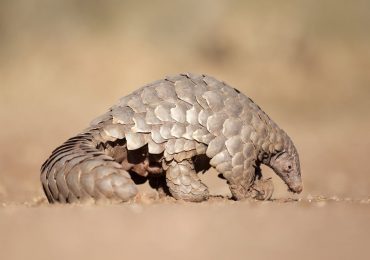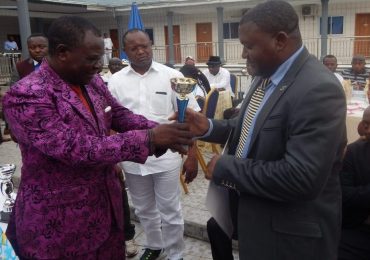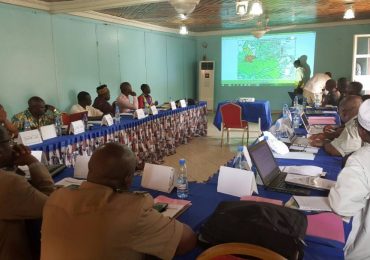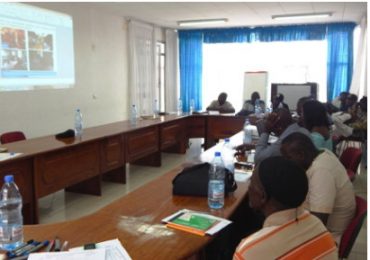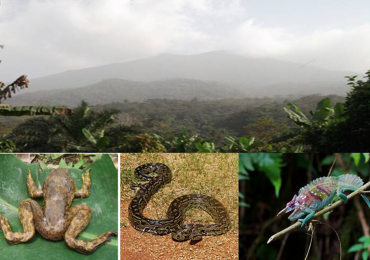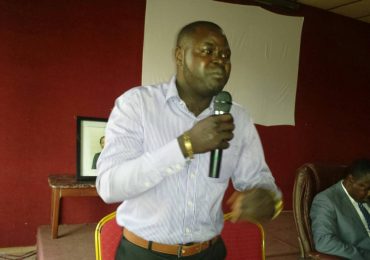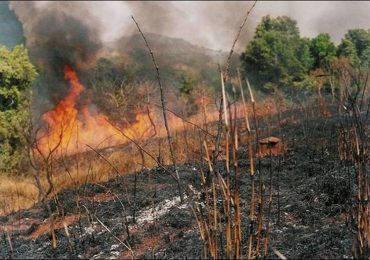The recent signing of an agreement between the villagers of Erat in Ndian Division, who found themselves living “illegally” in the middle of Korup National Park, and government officials, has been heralded as a good turn that will not only benefit the villagers, but also enhance the management of the park. The Permanent Use Zone (PUZ) agreement attracted the commendation of the park’s conservator, Fotindong Ferdinand.
GV: The signing of the PUZ Management Agreement gives Erat legal settlement status in the Korup National Park, does this mean these people have been encroaching into the park all these years?
Fotindong Ferdinand: Yes, because the law doesn’t allow for farm expansion, construction and the rest in a national park. It was foreseen that this village had to be relocated elsewhere but the experience of Ikondokondo relocation was not the best; the decisions were criticized at the international level and it was so expensive moving the village to the present site. This idea of Permanent Use Zones came up when we thought it would be better to keep the population in place, and then we map out an area where they can farm, carry out community hunting and other activities.
We have carved out the external boundaries of the PUZ with five management structures; communal forest where only hunting for subsistence can be carried out using traditional methods as spelt out in the law. We also have farm expansion zone, a farm reserve land because we know that the population will grow within the years so we want to prevent a situation where we shall start asking government to give another part of the park for settlement. We have reserved part of the PUZ that cannot be tampered with until after 25 years.

The villagers have also expressed their desire to set up cooperatives so we also set out part of the PUZ for community farms. We realized that there are farms which have been abandoned to fallow. So villagers who have abandoned farms will not be allowed to create new farms within the PUZ.
How will the signing of this agreement foster the management of the Korup National Park?
I think if the villagers respect what they have taken as commitments here; it will go a long way in helping us manage the park. They have become part of the park so they will assist us by reporting encroachment cases. They will feed us with information on what is happening in the park and in that way I think the management of the park will be improved upon.
Do the women understand what is happening and what their role is in the PUZ management agreement?
The committee that was put in place to discuss this PUZ agreement had three women. We have a cassava plot here that was put in place with improved varieties from IRAD. We intend to distribute these seeds to the women since most of the food crops here are cultivated by them; so that no matter how small their farm lands are, their yields will be good in such a way that they will not have need for larger pieces of land. We also plan to provide a water plant for the women of Erat. The preliminary studies were already done and by next week the project will be launched. The area is very dry and there is no good source of potable water, so we think that this project will be of great help to the women folk and the children.
The PUZ agreement previews rights and obligations for the community…
The villagers have the right to hunt for protein or subsistence. The motorcycle road under construction is a result of the agreement we made with the people to disenclave and help them transport their farm produce like cocoa, palm oil and the rest to neighbouring markets.
As an obligation, there will be a land allocation committee. We have put in place guidelines for these committees; for example, those who already have land can only apply for more land when they show proof of good management of existing land. The village also has the responsibility to make sure that foreigners don’t hunt in their forest especially because the borders with neighbouring villages are very close.
Actually what has been very disturbing to us here is hunting that was done for commercial purposes; the cost of a porcupine here in Erat is about 5.000 francs cfa and the cost triples in outside markets. So there was a very big market and demand for bush meat was high, which exerted a lot of pressure on the resources found in the national park.
How many villages are involved in this management agreement?
This is the second village we are signing with today. We started with Esukutan in 2014 and this year we are with Erat. We intend to move to Ikenge on the northeast of the park through Nguti. There are two other villages, Bera and Bareka Batanga. Our next intervention I think should be Bera.
(Interview conducted by Mkong Immaculate Kelighai)



